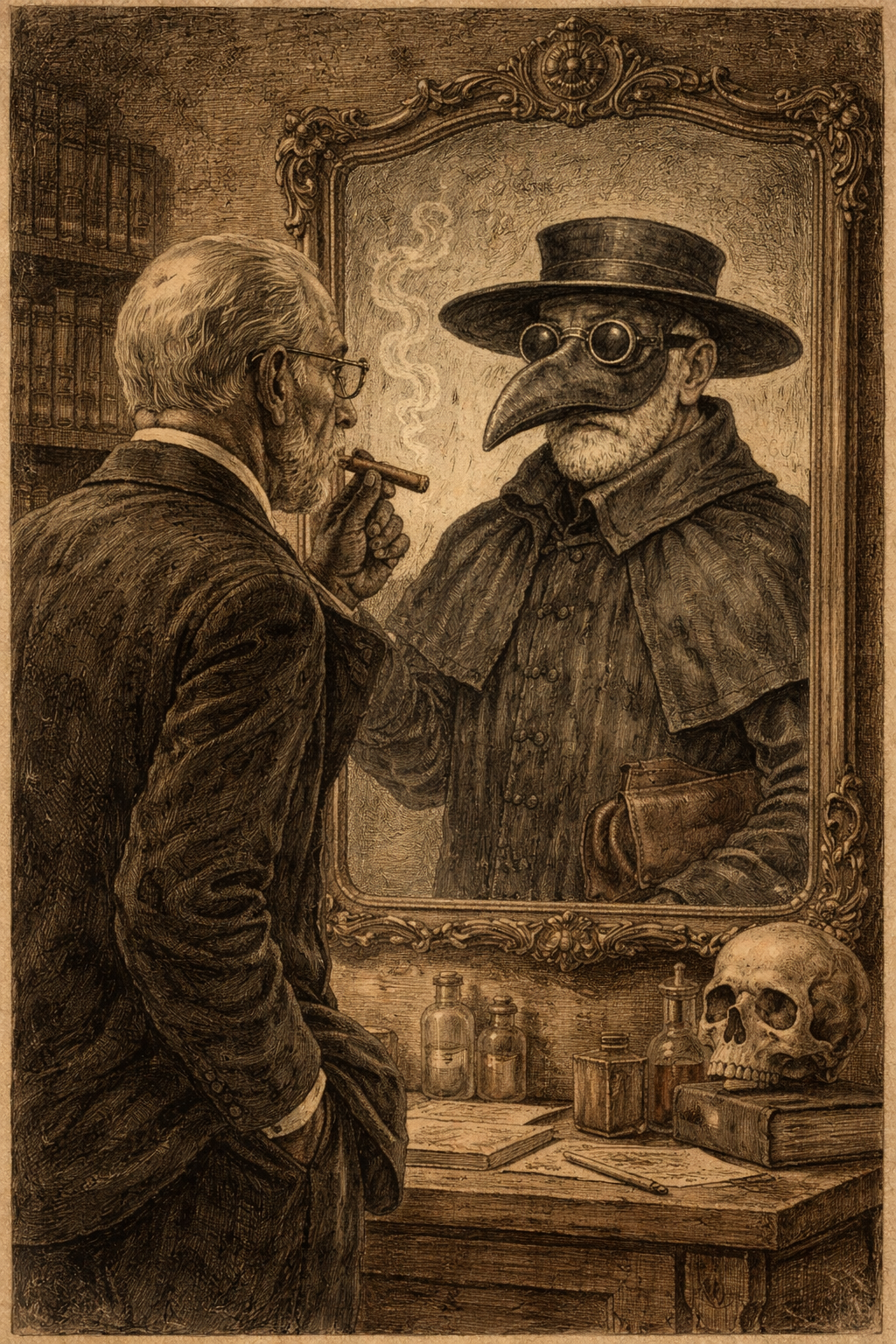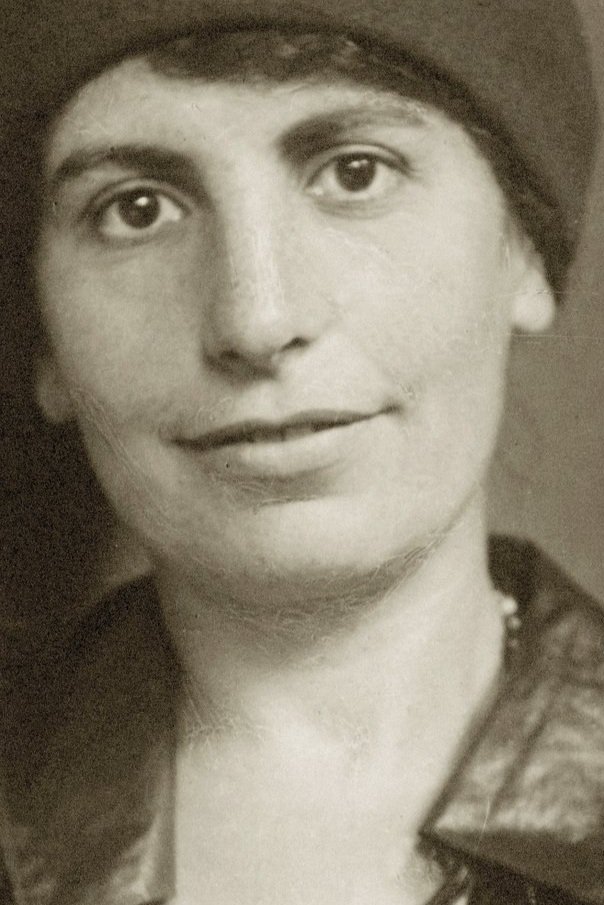Freud's Psychoanalytic Theory: An Exploration of Psychosexual Development
Freud’s theory of psychosexual development describes five stages—oral, anal, phallic, latency and genital—where early conflicts can shape adult personality. This guide explains each stage, fixation outcomes and key criticisms in clear, student-focused language.
| Stage | Age range (approx.) | Erogenous zone / focus | Key conflict / tasks |
|---|---|---|---|
| Oral | 0–1 year | Mouth (sucking, feeding) | Trust, dependency |
| Anal | 1–3 years | Bowel and bladder control | Autonomy, control, toilet training |
| Phallic | 3–6 years | Genitals, Oedipus/Electra complex | Gender identity, identification, superego |
| Latency | 6–puberty | Dormant sexual energy | Social skills, school, friendships |
| Genital | Puberty–adulthood | Mature genitals and relationships | Intimacy, work, integration of earlier stages |
I. Introduction
Sigmund Freud’s theory of psychosexual development has long stood as a cornerstone in the history of psychology, offering a bold framework for understanding how early childhood experiences shape personality and behaviour. Developed in the late 19th and early 20th centuries, Freud’s ideas were revolutionary for their time. By placing sexuality and instinctual drives at the heart of human development, Freud challenged prevailing Victorian norms and laid the groundwork for modern psychoanalysis. Even as contemporary researchers critique or refine his concepts, Freud’s emphasis on the profound importance of early life experiences remains a vital reference point in developmental psychology.
In essence, Freud theorized that human beings are driven by powerful unconscious forces—including the libido, or sexual energy—that influence us from birth onward. His model proposes five sequential stages—Oral, Anal, Phallic, Latency, and Genital—each linked to specific erogenous zones and developmental tasks. The manner in which an individual resolves (or fails to resolve) the central conflicts of each stage contributes to enduring personality traits.
Overview of the Stages
Oral Stage (Birth to ~1 year): Focused on the mouth as a source of pleasure, infants navigate trust and dependency through feeding and oral exploration.
Anal Stage (~1 to 3 years): The shift of focus to bowel and bladder control introduces themes of autonomy, power, and discipline.
Phallic Stage (~3 to 6 years): Heightened curiosity about the body and the Oedipus/Electra complex leads to the formation of gender identity and moral conscience.
Latency Stage (~6 to Puberty): Sexual impulses are largely submerged, while children direct their energy toward social, academic, and personal development.
Genital Stage (Puberty to Adulthood): With the reemergence of sexual energy, the individual ideally attains mature sexual relationships and a well-integrated personality.
Relevance in Modern Psychology
Despite over a century of debate, Freud’s ideas continue to inform both clinical practice and academic research. Modern psychology acknowledges the significance of early childhood attachment and the interplay of biological and environmental factors in personality formation—an intersection Freud first brought to light, albeit from a strictly psychosexual perspective. Contemporary theorists and therapists have evolved Freud’s work, introducing new evidence-based frameworks that incorporate cognitive, social, and cultural dimensions of development. Yet, many of the original psychoanalytic concepts—such as the unconscious mind, the importance of formative experiences, and the role of internal conflicts—remain embedded in today’s psychodynamic theories.
By exploring each stage of psychosexual development in depth, this resource aims to provide a balanced understanding of Freud’s legacy. We will examine how each stage contributes to personality formation, discuss potential outcomes of fixation and resolution, and evaluate how Freud’s theory aligns (or diverges) from later models of development. In doing so, readers can better appreciate both the foundational impact of Freud’s work and the ongoing dialogues that make the field of psychology a dynamic landscape of ideas.
Discover Freud's World
Ready to explore fascinating facts about Sigmund Freud and psychoanalysis? Test your knowledge!
II. Historical Context of Freud’s Theory
1. Freud’s Background
Sigmund Freud was born on May 6, 1856, in Freiberg (now Příbor in the Czech Republic), then part of the Austrian Empire. His family moved to Vienna when he was young, and it was in this bustling cultural and intellectual capital that Freud spent most of his life. Initially drawn to scientific research, Freud studied medicine at the University of Vienna, where he developed a keen interest in neurology and the emerging field of psychopathology.
Freud’s early work included collaborative research on the physiological aspects of the nervous system, but he soon shifted toward clinical practice, examining the psychological roots of mental disorders. By the late 19th century, treatments for mental health conditions were rudimentary, often relying on institutionalization or physical interventions. Freud’s passion for uncovering the deeper causes of psychological distress set him apart from his contemporaries, who rarely considered unconscious processes or the emotional significance of early childhood experiences.
2. Emergence of Psychoanalysis
Freud’s path toward psychoanalysis was influenced by several key figures and clinical experiences:
Jean-Martin Charcot (1825–1893): A renowned French neurologist, Charcot used hypnosis to study hysteria and demonstrated that mental states could influence physical symptoms. Freud studied with Charcot in Paris (1885–1886), gaining insights into the power of suggestion and the potential of exploring the unconscious mind.
Josef Breuer (1842–1925): A Viennese physician who treated “Anna O.” (real name Bertha Pappenheim) using a “talking cure” method. Breuer’s cathartic technique involved helping patients recall and verbalize repressed emotions. Freud and Breuer’s collaboration on the case (published in Studies on Hysteria, 1895) was seminal in laying the groundwork for psychoanalysis. It illustrated that symptoms of hysteria could be alleviated by bringing traumatic or repressed memories into conscious awareness.
Cultural and Scientific Milieu: Late 19th-century Vienna was a hotbed of intellectual discourse yet was also steeped in a conservative social climate, especially concerning issues of sexuality. Scientific advances were challenging religious and traditional views, but conversations about human sexuality remained taboo. Freud’s insistence on examining sexual drives as central to psychological development was thus provocative—he was pushing against the cultural mores of the time.
Psychoanalysis gradually took shape as a method focusing on free association, dream interpretation, and the therapeutic relationship. Freud believed that unravelling unconscious conflicts—often rooted in early childhood—could relieve psychological distress. By the turn of the 20th century, he had begun to formulate the core principles of his psychosexual development theory, which posited that children progress through distinct stages of sexual and emotional growth.
3. Initial Reception and Early Critiques
When Freud began publishing his findings and ideas (e.g., Three Essays on the Theory of Sexuality, 1905), he encountered both fascination and condemnation. Some medical professionals and academics saw promise in his emphasis on the unconscious, especially as traditional treatments for mental illness were limited in effectiveness. Others, however, were deeply uncomfortable with Freud’s focus on infantile sexuality and his claim that libidinal drives played a vital role in all aspects of human psychology.
Resistance from the Scientific Community: Many considered Freud’s theories too speculative and lacking in empirical rigor. His method of deriving universal principles from a limited number of clinical case studies appeared unorthodox.
Societal Discomfort: The Victorian moral climate in Austria and much of Europe made it difficult for Freud’s sexual hypotheses to gain acceptance. Critics argued that his views overstated the role of erotic drives and downplayed cultural, familial, and social influences.
Formation of a Psychoanalytic Movement: Despite resistance, Freud attracted a small circle of followers—Carl Jung, Alfred Adler, and others—who contributed new perspectives. Eventually, many of these early collaborators branched off, disagreeing with Freud on key points (e.g., the centrality of sexuality, the structure of the psyche).
By the early 1900s, psychoanalysis had become both a clinical method and an international intellectual movement. Freud continued refining his theory, expanding on the dynamics of the id, ego, and superego, and further detailing how childhood experiences impact personality formation. While ongoing debates surrounded his ideas, the fact that Freud put the human psyche and its development at the forefront of scientific inquiry was, at the time, revolutionary. This environment—marked by curiosity, controversy, and a reshaping of how mental health was understood—laid the groundwork for the later acceptance and evolution of Freud’s psychosexual development theory.
III. Foundational Psychoanalytic Concepts
Before delving into the specific stages of psychosexual development, it is important to understand several key concepts that underpin Freud’s broader psychoanalytic framework. These ideas—chiefly the structure of the mind, the concept of libido or psychic energy, and the role of defense mechanisms—provide the theoretical foundation for interpreting how individuals navigate each developmental stage.
1. The Structure of the Mind
Freud proposed that the human psyche comprises three interdependent components: the id, the ego, and the superego. Though metaphorical rather than strictly anatomical, these structures offer a way to conceptualize internal conflicts and how they shape personality and behavior.
Id
Nature: The id is entirely unconscious and represents our most primitive instincts and drives—particularly those related to survival, pleasure, and aggression.
Pleasure Principle: It seeks immediate gratification, operating under the motto “I want it, and I want it now,” disregarding logic or moral considerations.
Role in Development: Present from birth, the id’s impulses and desires drive the earliest stages of psychosexual development, such as the infant’s oral fixation on feeding.
Ego
Nature: The ego emerges as a mediator between the id’s demands and the external world’s constraints.
Reality Principle: Operating partially in the conscious realm, the ego seeks to fulfill the id’s desires in realistic, socially acceptable ways.
Role in Development: As children navigate the world—particularly during the anal stage, when they learn to control bodily functions—the ego grows stronger. The ego’s task is to balance impulsive drives with practical limitations and societal expectations.
Superego
Nature: The superego embodies moral standards and societal values, internalized through interactions with parents and other authority figures.
Moral Principle: It strives for perfection and can induce guilt or shame when the individual’s behavior conflicts with internalized ethics.
Role in Development: Forming primarily during the phallic stage, the superego emerges from identification with the same-sex parent and the resolution of the Oedipus/Electra complex. A robust superego exerts a powerful influence over the ego and helps regulate id impulses in accordance with cultural norms.
In daily life, an individual’s personality and behaviour represent a dynamic interplay among these three structures, with each vying for dominance under different circumstances. A well-adjusted person is seen as one whose ego successfully mediates between the instinctual id and the demanding superego.
2. Libido and the Concept of Psychic Energy
Central to Freud’s theory is the concept of libido, which he defined as the psychic energy or drive associated with sexual and life-preserving instincts. While modern interpretations of libido often conflate it exclusively with sexual desire, Freud used it more broadly, encompassing creativity, curiosity, and the general pursuit of pleasure or fulfillment.
Dynamic Allocation of Energy
Freud believed that psychic energy could be transferred or redirected within the psyche. When the libido becomes fixated on a particular stage, it can limit the energy available for future development.
Each psychosexual stage features a prominent “erogenous zone”—the body area or function through which the libido is expressed.
Role in Development
As children progress from infancy to adolescence, their libidinal focus changes according to biological maturation and psychological needs.
The nature of these shifts underpins the transitions between the oral, anal, phallic, latency, and genital stages.
Fixation
If a child’s needs at a particular stage are either under- or over-gratified, the libido may remain “stuck” there, leading to fixation.
Such fixations manifest in adult behavior patterns or personality traits (e.g., oral fixation might lead to habits like overeating or excessive smoking).
By centering development on the concept of libido, Freud placed unconscious drives at the forefront of human motivation. Although modern psychology often integrates biological, social, and cognitive factors into developmental models, Freud’s emphasis on the power of instinctual forces was pioneering at the time.
3. Defense Mechanisms
In Freud’s view, the ego bears the challenging task of reconciling demands from the id, moral imperatives from the superego, and constraints imposed by reality. To cope with these internal pressures, the ego employs defense mechanisms—unconscious strategies that protect an individual from anxiety, guilt, or other negative emotions.
Common defense mechanisms include:
Repression
Definition: Pushing distressing or unacceptable thoughts out of conscious awareness.
Example: An adult who experienced childhood trauma may have no conscious memory of the event but still exhibits symptoms of anxiety.
Denial
Definition: Refusing to accept reality or facts.
Example: A person who receives a serious medical diagnosis yet continues to act as though nothing is wrong.
Projection
Definition: Attributing one’s own unacceptable feelings or impulses to someone else.
Example: A person who is angry at a colleague yet accuses the colleague of harboring hostility toward them.
Regression
Definition: Reverting to behavior typical of an earlier stage of development.
Example: A stressed adult may begin to bed-wet again or engage in childish whining when under intense pressure.
Displacement
Definition: Redirecting emotions or impulses from the original source to a safer substitute.
Example: An individual angry at their boss might go home and take out their frustration on a family member instead.
Rationalization
Definition: Justifying behaviors or feelings with seemingly logical reasons to avoid confronting the true, often more painful, motivations.
Example: A student who fails a test might blame the teacher’s “unfair” questions rather than acknowledge a lack of preparation.
Though not exclusively tied to the psychosexual stages, defense mechanisms are integral to understanding how unresolved conflicts and anxieties from each stage can influence an individual’s overall personality. By recognizing these unconscious coping strategies, Freud and later psychoanalysts aimed to uncover repressed material and help clients achieve greater self-awareness and emotional balance.
Putting It All Together
Freud’s structural model of the psyche, his concept of libido, and his catalog of defense mechanisms form the theoretical scaffolding for his psychosexual development theory. As we explore each stage, we will see how these foundational ideas help explain why certain fixations develop and how childhood experiences echo throughout adult life. They also inform how psychoanalytic therapy operates—by illuminating hidden conflicts, easing fixation, and fostering a more harmonious interplay among the id, ego, and superego.
IV. The Five Stages of Psychosexual Development
Freud’s theory of psychosexual development outlines five sequential stages from birth to adulthood. Each stage is defined by an erogenous zone—an area of the body where libidinal (sexual) energy is focused—and a corresponding set of developmental tasks or conflicts. When these conflicts are not satisfactorily resolved, fixations may result, influencing personality and behavior well into adulthood.
A. Oral Stage (Birth to ~1 Year)
Age Range
From birth until approximately the first birthday.
Erogenous Zone
Mouth: The infant derives pleasure predominantly through oral activities such as sucking, swallowing, and later biting or chewing.
Key Developmental Tasks/Conflicts
Feeding and Trust: The infant’s primary interaction with the world involves receiving nourishment. Consistent and nurturing feeding fosters a sense of security and trust in caregivers.
Dependency vs. Independence: Although very young infants are entirely dependent, early positive experiences (e.g., being soothed through feeding) lay the groundwork for secure attachment and healthy interpersonal relationships.
Potential Fixations and Adult Outcomes
Oral Incorporative: If an infant is underfed, overfed, or otherwise lacks consistent oral satisfaction, they might develop traits such as overeating, smoking, nail-biting, or a tendency to be overly dependent or gullible (“swallowing” ideas too easily).
Oral Aggressive: Frustrations in the later part of the oral stage, such as early weaning or painful teething, may lead to hostility expressed verbally, such as sarcasm or “biting” remarks.
Contemporary Perspectives
Attachment Theory: Modern psychologists, influenced by John Bowlby and Mary Ainsworth, place emphasis on the bond formed through feeding and comforting. A secure attachment in infancy correlates with healthy emotional development.
Integrative Approaches: Some researchers suggest that while the specific concept of the mouth as an erogenous zone may be narrow, early nurturing experiences are indeed crucial for building trust, regulation, and emotional resilience.
B. Anal Stage (~1 to 3 Years)
Age Range
From about 1 year old to 3 years old.
Erogenous Zone
Anus: Pleasure is linked to bowel and bladder control, and the sensation of “holding in” or “letting go.”
Key Developmental Tasks/Conflicts
Toilet Training: This stage involves significant parental expectations around toilet training. The child must balance internal desires with external demands for cleanliness, order, and control.
Autonomy vs. Shame and Doubt: The child becomes aware of personal power, learning to regulate bodily functions. A successful navigation fosters independence and a sense of capability.
Potential Fixations and Adult Outcomes
Anal-Retentive: Overly strict or punitive toilet training may lead a child to become obsessively neat, perfectionistic, and stubborn as an adult, often referred to as “anal-retentive” traits.
Anal-Expulsive: Excessively lax or inconsistent training can produce adult tendencies toward messiness, disorganization, or impulsivity (“anal-expulsive” traits).
Contemporary Perspectives
Erikson’s “Autonomy vs. Shame and Doubt”: Developmental psychologist Erik Erikson expanded on Freud’s ideas by emphasizing the emotional and social aspects of this period, stressing that supportive guidance fosters confidence, while harsh discipline leads to doubt and shame.
Modern Child Psychology: Current research on effective toilet training suggests a balanced, patient approach. Extreme control or permissiveness can contribute to later issues with self-regulation and self-esteem.
C. Phallic Stage (~3 to 6 Years)
Age Range
From about 3 years old to 6 years old.
Erogenous Zone
Genitals: Children become curious about their bodies and may engage in exploratory behaviors.
Key Developmental Tasks/Conflicts
Oedipus Complex (in Boys) / Electra Complex (in Girls): Freud posited that children form a sexual attraction to the opposite-sex parent and harbor jealousy or rivalry toward the same-sex parent.
Identification: Resolution occurs when the child represses these feelings and identifies with the same-sex parent, internalizing their values, behaviors, and moral codes.
Formation of Gender Identity and Superego
Gender Identity: By aligning with the same-sex parent, the child begins to adopt societal norms regarding gender roles and behavior.
Moral Development: Identification during this stage is crucial for the development of the superego, shaping the child’s sense of right and wrong.
Potential Fixations and Adult Outcomes
Unresolved Oedipal/Electra Conflicts: May manifest in adult relationships through difficulties with authority figures, challenges in forming secure romantic attachments, or exhibitionistic/voyeuristic behaviors.
Narcissism or Sexual Anxiety: In some instances, individuals may develop issues related to self-centeredness, competitiveness, or sexual insecurity if the complex remains unresolved.
Contemporary Perspectives
Feminist and Neo-Freudian Critiques: Psychologists such as Karen Horney argued that Freud’s male-centered approach inadequately explained female development and overstated biological determinism.
Modern Gender Studies: Today’s scholarship underscores that gender identity formation is influenced by a mix of biological factors, socialization, and cognitive understanding of gender roles—often more nuanced than Freud’s original model.
D. Latency Stage (~6 to Puberty)
Age Range
From about 6 years old until the onset of puberty (roughly 11–12 years old).
Erogenous Zone
Relative Dormancy: Freud viewed this period as one of reduced sexual energy, with a focus on social, academic, and skill development instead.
Psychosocial Tasks
Sublimation of Sexual Energy: The child redirects libidinal energy into learning, sports, hobbies, and forming friendships.
Peer Relationships: Same-sex peer groups often predominate, fostering cooperative skills and social identity.
Industry vs. Inferiority: In Eriksonian terms, children build competence through academic and extracurricular successes.
Potential Fixations and Adult Outcomes
Minimal Adult Fixations: Because this stage is relatively calm, major fixations are less common. However, if a child struggles to develop peer relationships or academic skills, it could hamper self-esteem and social confidence later on.
Contemporary Perspectives
Cognitive Development: Jean Piaget’s research aligns with the idea that middle childhood is a time of heightened cognitive growth, logical thinking, and mastery of academic skills.
Social and Emotional Focus: Modern child psychology corroborates that peer interaction and skill-building are central tasks of this period, though Freud’s explanation of “sexual latency” is less emphasized today.
E. Genital Stage (Puberty to Adulthood)
Age Range
Beginning at puberty (around 12 years old) and continuing throughout adulthood.
Erogenous Zone
Genitals (Revisited): Sexual energy reawakens with puberty and is channeled toward mature, consensual relationships.
Key Conflicts
Integration of Previous Stages: The individual’s capacity for healthy adult sexuality depends on how earlier stage fixations were resolved.
Mature Intimacy: Establishing meaningful romantic partnerships and balancing sexual desires with emotional connections.
Outcomes of Successful Resolution
Capacity for Healthy Relationships: Individuals with minimal fixations can sustain satisfying romantic and social bonds.
Productive Work and Creativity: Freud also emphasized an adult’s ability to work productively and channel libido into cultural, intellectual, or artistic pursuits.
Contemporary Perspectives
Diverse Expressions of Sexuality: Modern views acknowledge a broader spectrum of sexual and relationship orientations than Freud considered.
Influence of Society and Culture: Contemporary research highlights that social norms, personal values, and cultural context significantly shape adolescent and adult sexuality. Freud’s original theory did not fully account for these factors.
Connecting the Stages
Freud proposed that each stage builds upon the previous one. Successful navigation through these developmental challenges fosters a well-balanced adult personality, while unresolved conflicts or overindulgence can lead to fixations that persist into adulthood. Although modern developmental theories often critique Freud’s focus on libido as overly narrow or biologically deterministic, the notion that early experiences leave an indelible mark on later life remains a cornerstone in many branches of psychology.
V. Critiques and Contemporary Perspectives
Freud’s psychosexual theory, while foundational in the field of psychology, has been subject to extensive scrutiny, debate, and reinterpretation. Criticisms focus on its scientific rigor, cultural assumptions, and limited scope in explaining the complex web of influences on human development. Nonetheless, many of Freud’s central ideas—such as the significance of early childhood experiences and the influence of unconscious processes—continue to resonate in modern psychological theories and practices.
1. Scientific and Empirical Critiques
Lack of Empirical Rigor
Subjective Case Studies: Freud’s theories largely stemmed from clinical observations and case studies (e.g., the famous “Dora” case), rather than controlled experimental research. Consequently, critics argue that his conclusions often rely on interpretive rather than verifiable data.
Difficult Testability: Core Freudian constructs—like the Oedipus complex or fixation—are challenging to operationalize and measure empirically. Researchers struggle to design studies that can reliably confirm or refute these concepts.
Overemphasis on Sexuality
Monolithic Focus: Many psychologists contend that Freud placed disproportionate weight on sexual drives, neglecting other critical motives such as attachment, curiosity, and the need for security.
Biological Determinism: Freud’s early model assumes that biological factors (libido, erogenous zones) dominate personality development. More recent frameworks suggest a broader interplay of genetics, environment, and cognition.
Influence on Psychotherapy
Evolution of Psychoanalytic Methods: While psychoanalysis once dominated clinical practice, contemporary therapies (e.g., cognitive-behavioral therapy, family systems therapy) frequently favor shorter-term, evidence-based approaches. Nonetheless, psychodynamic treatments—descendants of Freudian analysis—still incorporate many Freudian principles, such as exploring unconscious patterns and the therapeutic relationship.
2. Social and Cultural Critiques
Historical Context
Victorian Morality: Freud’s work emerged in a period when open discussion of sexuality was taboo. His decision to spotlight sexual drives was groundbreaking but also colored by the cultural milieu of turn-of-the-century Vienna.
Patriarchal Biases: Freudian concepts (e.g., “penis envy” in the Electra complex) have been criticized as reflecting sexist assumptions prevalent in Freud’s era.
Cross-Cultural Considerations
Diverse Norms: Cultural norms around child-rearing, gender roles, and sexuality vary widely. Critics suggest Freud’s theory may not universally apply to non-Western or collectivist societies where communal values and extended kinship networks shape development.
Modern Cultural Shifts: Contemporary viewpoints on sexuality, gender identity, and family structures differ significantly from Freud’s initial assumptions. Critics argue for frameworks that better address the fluidity and diversity of today’s cultural landscape.
Underrepresentation of Environmental Factors
Socioeconomic Influences: Freud’s model does not explicitly account for poverty, trauma, discrimination, or broader social conditions that can profoundly affect development.
Learning and Cognition: Later theories, such as social learning theory (Albert Bandura) and cognitive developmental theory (Jean Piaget), emphasize observational learning, imitation, and intellectual growth—factors largely absent in Freud’s original formulations.
3. Comparisons with Other Theoretical Frameworks
Erik Erikson’s Psychosocial Stages
Expanded Focus: Erikson maintained some elements of Freud’s stage-based approach but widened it to include social and cultural factors. His eight-stage model examines trust, autonomy, identity, and intimacy as critical developmental tasks throughout the lifespan.
Reduced Emphasis on Sexual Drives: Erikson’s perspective shifts the primary drivers of behavior from libido to the individual’s quest for identity and meaningful relationships within society.
Object Relations Theory
Key Proponents: Melanie Klein, Donald Winnicott, and others developed theories focusing on early relationships (particularly mother-child). Rather than erogenous zones, they study how internalized images of caregivers (or “objects”) shape personality and interpersonal dynamics.
Relational Emphasis: These approaches highlight emotional bonds, separation-individuation, and how individuals navigate their internal world of relationships, moving somewhat away from Freud’s drive-centered model.
Social Learning Theories
Albert Bandura: Proposes that behavior is acquired through observation, imitation, and reinforcement rather than through unconscious sexual conflicts.
Empirical Orientation: These theories are more easily tested in controlled environments (e.g., the famous “Bobo doll” experiments), providing quantitative data often lacking in classical psychoanalysis.
Cognitive Developmental Theories
Jean Piaget: Focuses on how children construct knowledge and reason about the world, moving through stages of cognitive sophistication.
Differences from Freud: Piaget’s model does not presume unconscious sexual drives as central forces but instead highlights active learning, problem-solving, and language development.
4. Modern Adaptations and Neo-Freudian Views
Neo-Freudians
Carl Jung: Broadened Freud’s concept of the unconscious to include a collective unconscious populated by archetypes shared by all humans.
Alfred Adler: Emphasized social urges (e.g., striving for superiority, social interest) over Freud’s sexual motivations.
Karen Horney: Challenged the male bias in Freud’s theory (e.g., “womb envy” as a counter to “penis envy”) and focused on basic anxiety stemming from interpersonal relationships.
Contemporary Psychodynamic Approaches
Integration with Attachment Theory: Many modern psychodynamic therapists integrate findings from attachment research (Bowlby, Ainsworth) to address early relational patterns in therapy.
Short-Term Dynamic Psychotherapy: Innovations include time-limited, goal-oriented interventions that retain the focus on unconscious conflicts but adapt to the demands of modern clinical settings.
Freud’s Enduring Influence
Language of Psychology: Terms like “defense mechanism,” “repression,” and “unconscious” have become common parlance, evidencing Freud’s lasting imprint.
Ongoing Revisions: Contemporary theorists continue to refine Freud’s concepts, applying advances in neuroscience, developmental psychology, and cultural studies to formulate more comprehensive models of personality development.
Balancing Critique with Contribution
While many aspects of Freud’s original theory appear outdated by modern scientific standards, his pioneering focus on the unconscious, the formative power of childhood, and the deep-seated origins of adult behavior opened vital avenues for psychological inquiry. Although newer models often challenge Freud’s emphasis on libidinal forces and universal stages, his legacy persists in the way clinicians and researchers think about developmental processes and the interplay between early experiences and later life.
VI. Legacy and Contemporary Relevance
Freud’s psychosexual development theory has cast a long shadow over the field of psychology—both inspiring new lines of thought and drawing significant criticism. Even though many of Freud’s specific ideas have been revised or refuted, his broader influence remains evident across therapy practices, cultural discourse, and ongoing research into human behavior.
1. Influence on Psychotherapy and Counseling
Foundation of the “Talking Cure”
Psychoanalysis: Freud’s clinical methods, including free association and dream analysis, set the groundwork for the broader practice of talk therapy. By exploring unconscious motives and repressed conflicts, patients gained insight into their symptoms and life experiences.
Modern Psychodynamic Approaches: While classical, long-term psychoanalysis is less common today, psychodynamic therapy—which retains Freud’s focus on internal conflicts and past relationships—remains an established orientation. Short-term models (e.g., brief psychodynamic therapy) integrate Freudian concepts but cater to contemporary clinical settings that require more goal-oriented treatment.
Lasting Concepts in Clinical Practice
Transference and Countertransference: Freud identified how patients project feelings onto the therapist (transference) and how therapists’ own reactions can inform treatment (countertransference). Many counseling theories still emphasize these relational dynamics.
Resistance and Repression: The notion that patients might resist confronting painful memories or impulses underpins therapeutic techniques aimed at gradually unearthing and working through unresolved issues.
2. Impact on Culture and Society
Mainstreaming Psychological Concepts
Common Language: Terms like “ego,” “id,” “superego,” “repression,” and “Oedipus complex” have seeped into everyday discourse, reflecting Freud’s lasting cultural footprint.
Literature and Film: The exploration of subconscious motivation has influenced creative fields. Writers and filmmakers frequently use Freudian themes—dream symbolism, repressed desires, inner conflicts—to add psychological depth to their work.
Shaping Conversations Around Sexuality
Challenging Taboos: Freud’s willingness to foreground sexual drives in understanding human behavior catalyzed a more open conversation about sexuality and childhood.
Evolving Norms: Although modern society continues to debate the specifics of sexuality, Freud played a critical role in bringing sexual development into both academic and public discourse—ultimately paving the way for more progressive discussions about sexual orientation, gender identity, and sexual health.
3. Integration with Modern Research
Unconscious Processes in Cognitive Science
Implicit Biases: Research in social psychology confirms that people hold unconscious biases and attitudes, a concept echoing Freud’s premise that significant mental content and motivations lie outside conscious awareness.
Neuroscientific Findings: Advances in neuroscience have begun to map certain aspects of unconscious processing (e.g., the role of implicit memory), lending some empirical support—albeit indirectly—to Freud’s original ideas about the unconscious mind.
Developmental Psychology
Attachment Research: Contemporary studies highlight the importance of early caregiver-child relationships in shaping emotional and social development. Although these insights often use different frameworks from Freud’s psychosexual stages, they reinforce his argument that early experiences can leave lasting imprints on personality.
Stage Theories: Erikson, Piaget, and others propose alternative stage-based models. Some parallels exist—such as Erikson’s alignment with certain age ranges and developmental tasks—but these models incorporate social, cognitive, and cultural factors beyond Freud’s focus on libido.
Clinical and Longitudinal Studies
Mixed Results: While certain features of Freudian theory (e.g., fixation) are difficult to substantiate through traditional empirical methods, there is consistent evidence that traumatic or stressful childhood events correlate with adult psychopathology.
Holistic Approaches: Modern research increasingly takes a biopsychosocial perspective—looking at genetics, brain development, family environment, and peer interactions—to explain why some children “fixate” or struggle with maladaptive patterns as they mature.
4. Ongoing Debates and Future Directions
Cultural Flexibility
Cross-Cultural Adaptations: Scholars question how well Freud’s stages apply across diverse societies with different child-rearing practices. Future research continues to examine whether universal features of early development transcend cultural differences or if alternative models better capture non-Western experiences.
Gender and Sexuality
Expanding Definitions: Contemporary understandings of gender identity and sexual orientation challenge Freud’s original assumptions, prompting new inquiries into how these factors interact with early development.
Intersectionality: Psychology increasingly recognizes the interplay of race, class, gender, sexuality, and culture, providing a more nuanced lens than Freud’s primary focus on parent-child dynamics in a Western, early 20th-century context.
Revisiting the Role of the Unconscious
Psychoanalytic vs. Cognitive Approaches: Cognitive-behavioral models often prefer more directly observable and measurable constructs, yet the topic of unconscious processes remains relevant (e.g., implicit learning and memory). Balancing these paradigms is an evolving challenge.
Ethical and Practical Considerations
Therapeutic Efficacy: Insurance and healthcare models demand measurable outcomes and shorter treatments, leading some clinicians to blend psychodynamic ideas with more structured, evidence-based methods.
Expansion in Research: The field continues to refine methods for studying unconscious processes, incorporating advanced imaging technology and experimental paradigms that may either validate or modify Freud’s core insights.
Summary of the Legacy
Freud’s ideas ignited a paradigm shift by centering psychological development around sexuality, unconscious drives, and early childhood experiences. While contemporary psychology has introduced broader, empirically testable models, Freud’s work remains integral as a historical foundation and a catalyst for continued exploration. His conceptualization of the human psyche’s complexity and his insistence on understanding the roots of behavior have shaped multiple domains—therapy, culture, and research—ensuring that psychosexual development remains a topic of enduring interest and spirited debate.
Simply Put
Sigmund Freud’s theory of psychosexual development remains a landmark in the history of psychology, fundamentally shaping how clinicians and researchers conceptualize childhood experiences and their lasting influence on adult personality and behavior. Despite the criticism that his ideas rely heavily on sexual drives, lack rigorous empirical backing, and reflect the cultural context of early 20th-century Vienna, Freud’s central tenets—the power of the unconscious, the formative role of early childhood, and the depth of inner conflict—continue to inform modern thought in both clinical and academic arenas.
Freud’s five-stage model (Oral, Anal, Phallic, Latency, and Genital) maps out developmental milestones in which unresolved conflicts can lead to characteristic fixations. While later theorists like Erik Erikson, Karen Horney, and Carl Jung offered alternative or expanded models, they all built on the foundation Freud established—underscoring the lasting resonance of his original insights. Contemporary psychology integrates his emphasis on the past with new research approaches, including attachment theory, neuroscience, cognitive development, and cultural studies, providing a more comprehensive picture of human growth and behavior.
Today, clinicians continue to adapt Freudian concepts, blending them with evidence-based practices in shorter, more structured therapeutic settings. His work paved the way for open dialogue around sexuality, inspired the language of psychoanalysis, and influenced cultural perceptions of the self. As debates on unconscious processes, cultural dimensions of development, and the neurobiology of personality endure, Freud’s legacy reminds us that understanding the human mind often requires probing beneath the surface. Whether one champions or challenges his views, Freud’s psychosexual development theory undeniably remains a cornerstone, prompting critical reflection on the intricate web of factors—biological, psychological, and social—that shape who we become.
References
Table of Contents
FAQ: Freud’s Psychosexual Development
1. What are Freud’s five psychosexual stages?
Freud proposed five stages: oral, anal, phallic, latency and genital. Each stage focuses on a different erogenous zone and set of conflicts that can shape adult personality if unresolved.
2. What is fixation in psychosexual development?
Fixation occurs when a child’s needs are over- or under-gratified at a stage, causing “stuck” energy that later shows up as adult traits (e.g., oral fixation → smoking, overeating, dependency).
3. Is Freud’s psychosexual theory still accepted today?
Most psychologists see Freud’s specific claims as outdated and hard to test, but his broader ideas—unconscious processes and the importance of early experiences—still influence modern psychodynamic and attachment-based theories.
4. How is Freud’s theory used in psychology exams?
Students are often asked to describe the stages and evaluate the theory by discussing issues such as lack of empirical evidence, cultural bias and overemphasis on sexuality.






























Explore the ethical, methodological, and scientific criticisms of the famous Little Albert experiment by John B. Watson and Rosalie Rayner. Learn about its legacy, controversies, and lasting impact on psychological research.